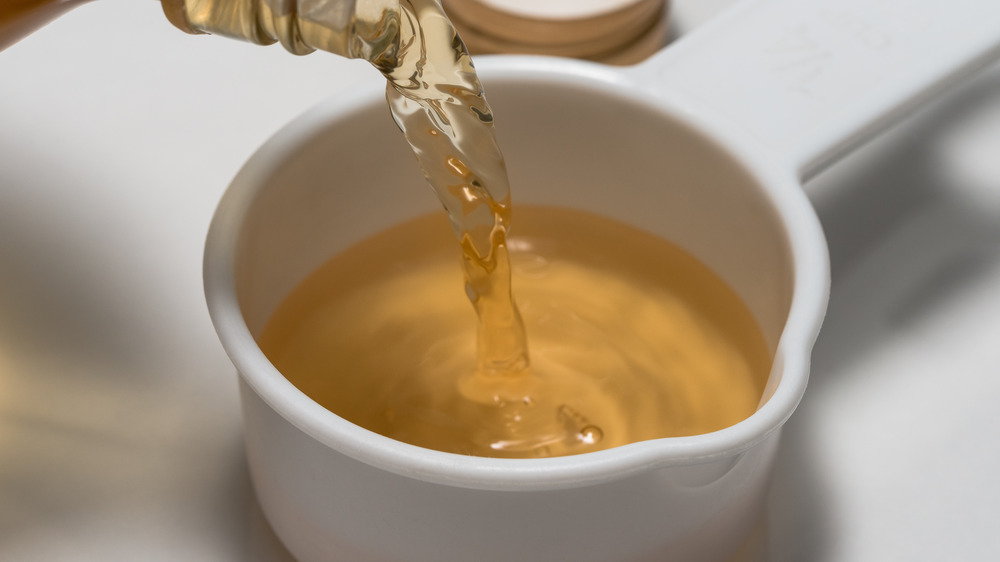Why You Should Think Twice Before Drinking Apple Cider Vinegar
A food trend that many swear by, apple cider vinegar has taken hold as a key ingredient in products ranging from detox teas to skincare items. Some use it as a facial toner, while others add it to their water for a digestive boost. However, the properties of ACV are similar to regular white vinegar, making it especially acidic and, thus, hard on your stomach.
The tonic's touted benefits include a sped-up metabolism, glowing skin, flawless digestion, and more. But, is it really all it's cracked up to be? "Apple cider vinegar is not this magical elixir that's going to solve all of our problems," Amanda Baker Lemein, RD, tells Women's Health. If you're struggling with inflammation or issues with your digestive tract, apple cider vinegar can be like adding gasoline to the fire. The outlet explains that those with easily-upset stomachs, ulcerative colitis, and generally inflamed systems should avoid the liquid to mitigate the risk of making things worse.
On top of the acidic effects, apple cider vinegar can cause bloating because it slows the rate at which your stomach can empty itself, Women's Health explains. Those who bloat easily should avoid adding ACV to their wellness routines, as it can lead to gas, nausea, and water-retention. "A healthier diet alternative would be to increase water intake and choose more high fiber non-starchy vegetables," Eliza Savage, RD, tells the mag.
Apple cider vinegar may lead to esophageal burns
Any experienced ACV drinker will know that it's important to dilute the liquid before use since its high acetic content can damage the sensitive skin in your throat. Everyday Health contends that it may even lead to a burn in your esophagus — so, if you still want to use ACV on a regular basis, ensure that it's properly weakened with water or another neutralizing substance. Plus, the same phenomenon can lead to tooth erosion and lower your potassium levels. If you're taking medications, it's important to check if they have any interactions with this wellness additive as well, the outlet notes.
Furthermore, particularly if you suffer from acid reflux, any highly-concentrated acidic substance will make matters worse. Women's Health explains that ACV even ranks between a level two and three on the acidic scale, with zero being the most acidic and seven being the least. With other ailments, including kidney issues, ACV can cause more harm than good. "There has been some research to show that if you do have any sort of weakened kidneys or immunocompromised kidneys, then consuming anything that is highly acidic is not going to be advised," Lemein says.
Even though many have hailed apple cider vinegar as the cure-all antidote to various health issues, it may not work for everyone. Make sure to use ACV in moderation, if at all, when ingesting.

